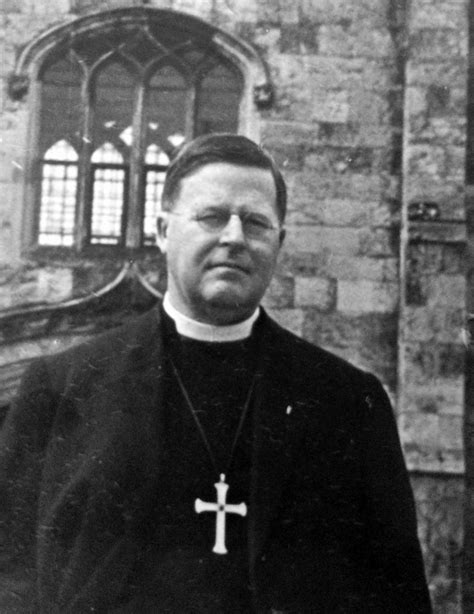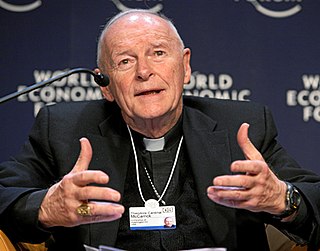A Quote by Robert Browning
That we devote ourselves to God, is seen In living just as though no God there were.
Related Quotes
When we believe that we ought to be satisfied, rather than God glorified, we set God below ourselves, imagine that He should submit His own honor to our advantage; we make ourselves more glorious than God, as though we were not made for Him, but He made for us; this is to have a very low esteem of the majesty of God.
Detachment from things does not mean setting up a contradiction between 'things' and 'God' as if God were another thing and as if creatures were His rivals. We do not detach ourselves from things in order to attach ourselves to God, but rather we become detached from ourselves in order to see and use all things in and for God.
We seldom realize fully that we are sent to fulfill God-given tasks. We act as if we were simply dropped down in creation and have to decide to entertain ourselves until we die. But we were sent into the world by God, just as Jesus was. Once we start living our lives with that conviction, we will soon know what we were sent to do.
The reality of living by faith as though we were already dead, of living by faith in open communion with God, and then stepping back into the external world as though we are already raised from the dead, this is not once for all, it is a matter of moment-by-moment faith, and living moment by moment. This morning's faith will never do for this noon. The faith of this noon will never do for suppertime . The faith of suppertime will never do for the next morning. Thank God for the reality for which we were created, a moment-by-moment communication with God himself.
If it were not for the Eucharist, if it were not for this marvelous manifestation of God's love, if it were not for this opportunity to place ourselves in the very real presence of God, if it were not for the sacrament that reminds us of His love, His suffering and His triumph, which indeed perpetuates for us His saving sacrifice on the cross, I am sure that I could never face the challenges of my life, my own weakness and sinfulness and my own need to reach out to the Living God.
Honesty before God requires the most fundamental risk of faith we can take: the risk that God is good, that God does love us unconditionally. It is in taking this risk that we rediscover our dignity. To bring the truth of ourselves, just as we are, to God, just as God is, is the most dignified thing we can do in this life.
We may have created this projection of what God should be, as this judge or test, but the fact is, the only way we know about God is by knowing ourselves in some way. So God must be in ourselves-you can't deny that. If you say that God is somewhere else, which is what a lot of religions say, I just can't deal with it. I guess it's the difference between Buddhism, Christianity, and Judaism, or something.
As the Holy Trinity, our God is One Being, although Three Persons, so, likewise, we ourselves must be one. As our God is indivisible, we also must be indivisible, as though we were one man, one mind, one will, one heart, one goodness, without the smallest admixture of malice - in a word, one pure love, as God is Love. That they may be one, even as We are One (John 17:22).
Does God have a reason for wanting us to be charitable, to take care of those who can't take care of themselves? Either God does or God doesn't, it's just logic. If God has a reason then there is a reason independent of God and whatever God's reason is we should figure it out for ourselves. There is a reason and God doesn't really ground morality at all. God wants us to give charity because it's the right thing to do.
When you have closed the Bible, you have neither closed God's mind nor shut God's mouth. God continues to speak, live and exist. I think we should consult the living God for the living word for living people dealing with death, destruction and despair in the midst of our hurt humanity. I believe love will conquer all.







































